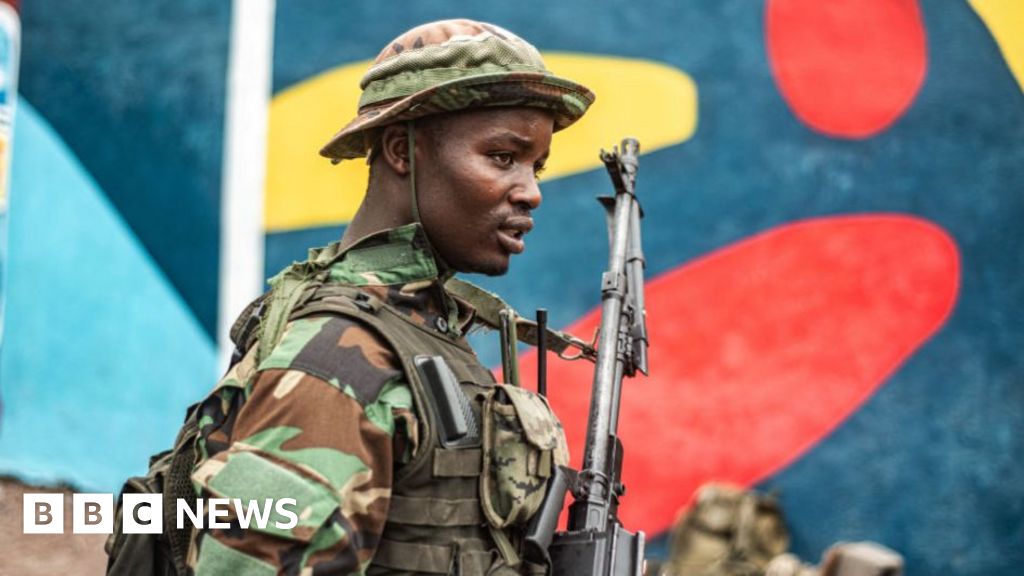M23 rebels suspend peace talks with DR Congo government

M23 Rebels Suspend Peace Talks with DR Congo Government
The M23 rebel group, a major player in the ongoing conflict in eastern Democratic Republic of Congo (DRC), has announced its withdrawal from peace negotiations with the Congolese government. The group cited a failure by the government to adhere to a previously agreed-upon ceasefire as the reason for its decision, throwing the already fragile peace process into further uncertainty.
The suspension comes as negotiations were scheduled to resume in Qatar this week. M23 spokesperson Lawrence Kanyuka, speaking to the BBC's Great Lakes service, accused the Congolese government of "not wanting peace" and violating the terms of the ceasefire agreement signed in Qatar last month. The agreement aimed to de-escalate tensions and pave the way for a lasting resolution to the conflict.
Accusations and Counter-Accusations
Kanyuka alleged that government forces continued to attack M23 positions despite the ceasefire stipulating that both sides refrain from offensive operations. However, the Congolese military vehemently denies these accusations, claiming that the M23 has launched near-daily attacks in the North Kivu and South Kivu provinces.
The mutual accusations highlight the deep mistrust and continued hostilities between the two sides, making any progress towards a peaceful resolution exceedingly difficult. The collapse of these talks further exacerbates the humanitarian crisis in eastern DRC, where hundreds of thousands have been displaced by the fighting.
Failed Ceasefire Undermines Peace Efforts
The ceasefire agreement, brokered in Qatar, was intended to build upon a separate peace deal between DR Congo and Rwanda, facilitated by the United States in June. However, the current impasse underscores the challenges of implementing peace agreements in a region plagued by decades of conflict and complex geopolitical dynamics.
An unnamed Qatari official told AFP that a draft agreement had been shared with both the DR Congo government and the M23. The failure to reach a consensus and solidify the ceasefire demonstrates the lack of commitment from both parties to pursue genuine peace.
Regional Tensions and External Involvement
The conflict in eastern DRC is deeply intertwined with regional tensions, particularly between DR Congo and Rwanda. The Congolese government, along with the United Nations and several Western powers, has repeatedly accused Rwanda of supporting the M23 rebels. Rwanda has consistently denied these allegations, despite mounting evidence suggesting otherwise. The US-brokered peace deal between DR Congo and Rwanda, despite its initial promise, appears to have done little to ease these tensions.
Historical Context: A Region Scarred by Conflict
The M23, primarily composed of Congolese Tutsi, emerged in 2012, claiming to defend the interests of their community. However, their actions have been widely condemned for contributing to instability and human rights abuses in the region. The group's resurgence in recent years has reignited long-standing grievances and deepened ethnic divisions within eastern DRC. This latest suspension of peace talks is not an isolated incident, but rather a continuation of a cycle of violence and failed negotiations that has plagued the region for decades. The legacy of the Rwandan genocide and its spillover effects into eastern Congo continues to fuel tensions and complicate peace efforts.
Expert Analysis: A Lack of Political Will
"The suspension of these talks is deeply concerning, but unfortunately, not entirely surprising," says Dr. Yolande Kakule, a Congolese political analyst specializing in conflict resolution in the Great Lakes region. "There has been a persistent lack of political will from both sides to genuinely engage in meaningful dialogue and address the root causes of the conflict. The international community needs to exert more pressure on both the Congolese government and the M23 to prioritize the needs of the civilian population and commit to a lasting peace." Dr. Kakule emphasizes that a comprehensive approach, addressing issues of governance, resource management, and security sector reform, is crucial for achieving sustainable peace in the region.
Another expert, Professor Alcide Mumbere, a historian at the University of Kinshasa, argues that external actors also bear a significant responsibility. "The meddling of regional and international powers, particularly the exploitation of Congo's vast mineral wealth, has fueled the conflict for decades," he says. "A genuine commitment to peace requires addressing these underlying economic interests and ensuring that the Congolese people benefit from their own resources."
Humanitarian Crisis Deepens
The ongoing conflict has had a devastating impact on the civilian population. Thousands have been killed, and hundreds of thousands have been displaced from their homes, according to the UN. The suspension of peace talks further diminishes hopes for a swift resolution to the crisis and raises concerns about the potential for further escalation of violence.
The international community is now facing renewed calls to intensify its efforts to mediate a peaceful resolution to the conflict and provide humanitarian assistance to the affected population.
Originally sourced from: BBC News Africa
